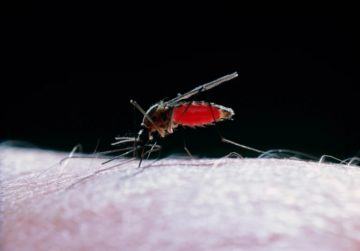Smriti Mallapaty in Nature:
 Blood-sucking mosquitoes have their uses. An innovative approach analysing their last blood meals can reveal evidence of infection in the people or animals that the flying insects feasted on.
Blood-sucking mosquitoes have their uses. An innovative approach analysing their last blood meals can reveal evidence of infection in the people or animals that the flying insects feasted on.
Scientists say that the method, presented at an infectious-disease conference in Malaysia last week, could be used to study people’s and animals’ past exposure to a range of pathogens, while avoiding the ethical and practical issues of testing them directly.
“This is a novel and fascinating approach, which demonstrates innovative ways to use the environment around us to learn more about exposure to infection,” says Shelly Bolotin, a vaccine scientist at the University of Toronto in Canada.
It could also aid early detection in animals of diseases such as Ebola and SARS-CoV-2, says Niels Verhulst, who studies pathogens transmitted by insects, at the University of Zurich, Switzerland. And it could help scientists to identify the animal host of a new virus, adds Verhulst, who has tested the approach.
More here.
